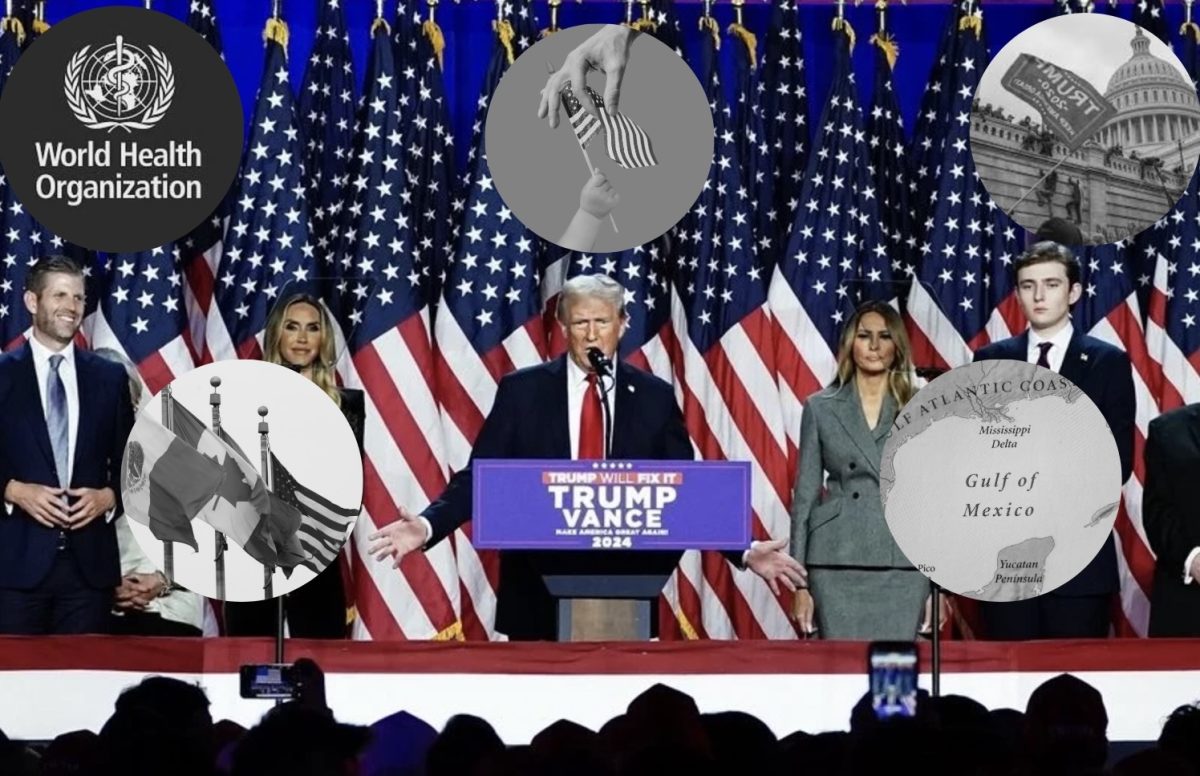Beginning on April 2, Trump has officially issued tariffs on many countries that serve as major trade partners with the U.S. According to the BBC, “Tariffs are taxes on goods from other countries.” Trump, however, claims these tariffs are reciprocal, meaning other countries will pay the expense. He states the goals of this policy are to increase manufacturing in the U.S. and punish other countries for inflating taxes on products America imports.
Fox News reported that Trump stated, “For nations that treat us badly, we will calculate the combined rate of all their tariffs, nonmonetary barriers and other forms of cheating.” Additionally, the White House declared a national emergency out of concern for the current state of American manufacturing. Republicans who share similar economic views as Trump believes tariffs will be the most successful solution to all pressing economic challenges.
Since going into effect, the tariffs have caused the value of the stock market to drop. Depending on the permanent impacts of the tariffs globally, this trend may be subject to change. Unfortunately, however, another possible outcome is the continual decline of the stock market.

The majority of Democrats believe tariff policies will inevitably hurt the economy by causing goods the U.S. imports from other countries to dramatically increase in price. Additionally, democrats are concerned that tariffs will cause U.S. allies to become disgruntled and hurt poor countries. Some politicians fear that a potential product inflation and devalued stock market will lead to a recession. ABC News reported that Senate Minority Leader Chuck Schumer said, “They know [the tariffs are] a tax hike on the American people. They know that the stock market is in turmoil, risking people’s retirements. They know that consumer confidence is down and the odds of a recession.”
While Trump correlates increased manufacturing in the U.S. to a stronger economy, Schumer thinks tariffs will have an opposite result: a recession.
Freshman Avery Walker, who agrees with Schumer, said, “Everything created by the other countries affected by tariffs will be exponentially more expensive and this will further the wealth disparity. Tariffs will negatively affect every American citizen, especially those in the middle and lower class.”
In addition to the Trump administration, many republicans are hopeful about tariffs successfully increasing production in the U.S. Republicans argue that tariffs in Trump’s first term did not result in inflation, therefore, incoming tariffs will not increase prices as well. Some politicians view tariffs as the solution to countries inflating the prices of products they sell to the U.S.
Virginia Dreisbach (27′) hopes tariffs will produce a stabler economy, “Though it is difficult to know what the exact results of the tariffs will be, President Trump is enacting them in an effort to reset the current trade relations with other countries that may currently be unfair to the U.S. Additionally, the tariffs will raise our revenue for the U.S., which will help reduce the national deficit and help bring back manufacturing, which will create more U.S. jobs.”
In response to concern about the declining state stock market, Press Secretary Karoline Leavitt urges Wall Street to anticipate eventual positive results. Leavitt believes Trump’s tariffs should be successful, creating a “golden age of America.”
Despite the claims made by both Democrats and Republicans, it is uncertain how tariffs on other countries will impact the economy. Any positive outcomes will likely increase Trump’s approval rating. The continual decline of the stock market, however, could decrease trust in the Trump administration and result in an advantage for democrats in the upcoming 2026 midterm election. As tariffs greatly contrast from Biden’s economic policies, Americans remain hopeful they will have the most beneficial result on the economy.









